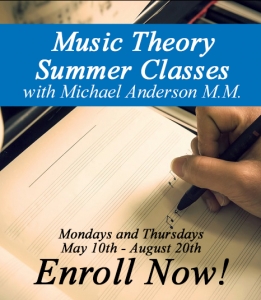What is “Philosophy for Children”?
This is itself an important philosophical question, not easy to answer; but let us say that philosophy, among other things, is self-conscious inquiry into the meaning of puzzling and contestable concepts. In ancient times philosophy was known as a search for wisdom or meaning, and many of the concepts philosophers have thought about for thousands of years are ones we use to structure our daily experience. “What is justice?” “What is beauty?” “How can I be sure of what I know?” “What is the right thing to do?” “What is real?”
Philosophy is also known for the cultivation of excellent thinking. One of the most ancient branches of philosophy is logic, which includes informal logic, or “critical thinking.” But philosophy is not only an intellectual pursuit. Philosophers have tried to improve their thinking in order to better explore the philosophical dimensions of experience, such as the ethical, political and aesthetic dimensions, and in order to improve their judgments and actions within these dimensions. Philosophy helps us learn to recognize, for instance, the ethical problems and possibilities in our experience, to think through them carefully, to make sound ethical judgments and to take appropriate action. This is why for thousands of years people have practiced philosophy, not only in universities but also in business offices, reading clubs and coffee houses.
What is a Typical Online Class Like?
Our Philosophy for Children online classes will utilize the same classroom software as the rest of our online classes (Socratic and Great Books Program). Students will have access to our Online Learning Center for weekly readings and any weekly assignments. Students begin philosophy sessions by reading aloud a philosophical story-typically, one that depicts fictional children discovering and exploring philosophical issues and applying their reasoning to life situations. Students next identify the issues in the story that they are interested to discuss, collaborating in the construction of the agenda or lesson plan. For the remainder of the session, and for the next few or several sessions, the students and moderator deliberate upon these issues as a community of philosophical inquiry. These inquiries may culminate in action projects or works of art, but in any case they should culminate in the participants’ self-correction of their previous beliefs, feelings or values..
One very important element of Philosophy for Children is stimulus materials that provoke and support the students’ philosophical work. The most effective stimulus materials may be ineffectual without the central practice of Philosophy for Children: the community of inquiry. Participating in a community of inquiry engages young people in important cognitive moves such as creating hypotheses, clarifying their terms, asking for and giving good reasons, offering examples and counter examples, questioning each other’s assumptions, drawing inferences, and following the inquiry where it leads. But inquiry is also a social enterprise, which requires students to share their own perspectives, listen to one another, read faces, challenge and build on one another’s thinking, look for missing perspectives and reconstruct their own ideas. This kind of meaningful classroom dialogue is something most students find irresistible: they can’t help joining in, contributing their own reflections. In this way, cognitive and social skillfulness are acquired naturally and in context, rather than in isolated drills.
Children who are new to philosophy need the help of an experienced moderator. The moderator sees her/himself as a co-inquirer with the children, as interested as they are in exploring philosophical concepts, improving judgment and discovering meaning. However, when it comes to the procedures of inquiry, the facilitator both guides the children and models for them-by asking open-ended questions, posing alternative views, seeking clarification, questioning reasons, and by demonstrating self-correcting behavior. It is through this kind of modeling that the children eventually internalize the procedures of inquiry. Our moderators are taught to neither impose authoritative views on their students nor attempt to validate every student’s opinion in a relativistic fashion. They view their role as helping children to understand and use the tools of philosophical inquiry so that children can construct and re-construct their own answers to philosophical questions. The children should see the facilitator as someone who respects them as persons, takes what they have to say seriously, doesn’t think s/he knows everything, models self-correction and really loves ideas.
The objective of such philosophy sessions is neither to find final answers to the questions that are raised, nor to reach complete agreement among the community. On the other hand, a genuine dialogue ‘moves forward’ in some sense that distinguishes it from mere lively conversation. Philosophy for Children seeks two kinds of objectives: progress in coping with the philosophical questions-which might include adapted beliefs, new hypotheses for experiment or even clarification of the question-and growth in the cognitive and social procedures of inquiry. With these objectives in mind, participants in the community of inquiry typically take stock of their own progress with questions such as:
- Have we begun to deal with this question?
- What do we understand now about the question/concept that we didn’t understand before?
- Are we giving each other reasons for our views?
- Are we listening to each other?
- Are we able to stick to the point?
- Are we able to build on each other’s ideas?
- Who is doing the talking?
- Do we correct each other with sensitivity?
- Are we becoming more tentative about what we claim to know?
- Do we trust each other?
The most enthusiastic proponents of Philosophy for Children are the children, who find philosophy not only thought-provoking but fun. Parents and teachers likewise enjoy doing philosophy with their children. They appreciate this ancient discipline as a way to help their children and themselves to sharpen their thinking, encounter new ideas, decide what they believe, and get to know others through shared inquiry.
What is the Philosophy for Children Curriculum?
The curriculum materials in Philosophy for Children for use in grades 3-8th. The curriculum is designed to engage students in exploring the philosophical dimensions of their experience, with particular attention to logical, ethical and aesthetic dimensions. Since their publication over 30 years ago these materials have been translated into over 40 languages and are now used in over 60 countries.
The curriculum consists of novels for students and manuals for teachers. Each novel is about 80 pages in length and is written in informal language, without technical terminology. Each manual is about 400 pages in length and contains conceptual explanations for teachers as well as discussion exercises and activities that can be used to supplement the students’ inquiry. These manuals are indispensable for conducting dialogical inquiry.
When are the Class Times?
Classes will be held on FRIDAYS starting September through May (two semesters). All classes are one academic hour in length. Classes are $495 per year.
Elfie: Reasoning About Thinking
As a first grader, Elfie is shy. She finds it hard to speak in class but she enjoys observing and puzzling over everything that happens around her. So, when the school principal proposes a contest aimed at improving reasoning, Elfie finds herself caught up with her whole class in figuring out how sentences work and how distinctions and connections are made. In little to no time, Elfie and her classmates begin discovering many distinctions fundamental to philosophical inquiry: appearance and reality, the one and the many, parts and wholes, similarity and difference, permanence and change. This novel touches upon the ethical concepts of: friendship, love, self-esteem, respect for others, teasing, choosing, and parent-child relationships.
Kio and Gus: Reasoning About Nature
When Kio visits his grandparents’ farm he befriends another boy named Gus, who lives nearby. Kio helps Gus become aware of the world as the blind experience it, and some of the differences that characterize the creative activities of the blind. Kio’s grandfather was once a sailor, and early in the book tells of an encounter he once had with a whale. He is determined to visit a site where he can observe whales once again, and Kio persuades him to take the two families along. This book consists of conversations between Kio and Gus as they explore the nature of animals, people and things in the world that surround them. Kio and Gus wonder together about the contrasting concepts of: make-believe/reality, fear/courage, saying/doing, and truth/beauty. Young readers will find their sense of wonder challenged as much as their reasoning skills.
Harry Stottlemeier’s Discovery: Reasoning About Reasoning
One day Harry finds himself giving the wrong answer in his middle school science class and wonders: where did I go wrong? This question leads Harry and his classmates to think about the nature of thinking, inquiry and knowledge. With the help of their teacher, Harry and his classmates discover rules of formal and informal logic, relational logic and hypothetical thinking as tools to help them understand themselves and their world. This novel explores the concepts of: education, mind, rights, religion, art, cause and effect, causes and reasons, and fallibilism. Adults with a background in philosophy will easily recognize the perennial philosophical issues raised in the story. However, no such background is necessary for young people or adults to enjoy this thought-provoking novel which offers several models for reasonable dialogue.




